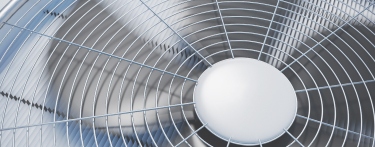Improving the overall air quality in your home is extremely important. It’s the best way to keep your family health and safe from the many pollutants and other irritant particles that find their way into both indoor and outdoor air. That’s why you can never do enough to make sure the air in your home is a clean and free of contaminants as possible.
Of course, it’s always important to install a high-quality air filtration system. These systems offer great benefits and can eliminate many of the harmful particles that find their way into the air supply of your home. However, even when you have one of these systems in place, there are still more things you can do to make the air in your home that much safer for you and your family.
How to Maintain your Indoor Air Filtration System
Just like anything else, your indoor air filtration system will need to be cleaned and serviced from time to time if you want it to keep functioning properly. Over time, all of the particles that the filtration system eliminates can build up on the different parts of the equipment. This can lead to improper functioning and inadequate filtration.
Also, you’ll need to make sure that your filters are changed regularly. In general, most manufacturers recommend that you do this at least once every 90 days. Once your filters are full, they won’t be able to remove anywhere near the percentage of contaminants they could otherwise.
maintaining moisture levels in the air: dehumidifiers & humidifiers
Maintaining the quality of the air in your home isn’t just about filtering out the bad particles. It’s also about maintaining the right level of moisture in the air. Air that doesn’t have enough humidity can cause your skin and nasal passages to dry out. It can also make it harder to eliminate certain contaminants, making it more likely that you’ll get sick.
Air that’s too humid, on the other hand, can have plenty of other negative effects. Many biological contaminants need moisture to breed, and mold grows best in a damp environment. Keeping the moisture level just right in your home is an important part of maintaining overall good indoor air quality. You can balance the moisture of your indoor air with dehumidifiers & humidifiers.
impact of cleaning products on indoor air quality
The cleaners you use can also contribute to the overall air pollution in your house. Using only cleaners that are free from nonylphenols and octylphenols can help keep the air you breathe healthier. Also, you should be mindful of the pesticides and other chemicals you may use outside, as these can easily be tracked into the house and wind up in your air supply.
impact of smoking on indoor air quality
A strict no smoking rule inside your home is a must if you’re serious about improving the indoor air quality. Cigarette smoke is a major contributor to indoor air pollution and can also make you and your family more susceptible to asthma and cold viruses. There’s not much reason to install an indoor air filtration system if you’re going to continue to allow smoking indoors.
Carbon Monoxide Detectors
Carbon monoxide is a silent danger and there’s really no way to know it’s infiltrating your home unless you have carbon monoxide detectors in place. This isn’t the type of contaminant that can be removed by air filtration systems and it’s important to have some way of keeping your family safe from this harmful gas.
impact of cleaning & dusting on indoor air quality
No matter what kinds of high tech systems you have in place, there’s no substitute for keeping things clean and sanitary throughout your house. Cleaning and dusting on a regular basis can keep many contaminants from getting out of hand and will reduce the overall demand you’re placing on your indoor air filtration system.



